"The winning strategy is to be confused about causality" 😅
22.10.2025 09:14 — 👍 1 🔁 0 💬 1 📌 0Magnus Nordmo
@magnusnordmo.bsky.social
@magnusnordmo.bsky.social
"The winning strategy is to be confused about causality" 😅
22.10.2025 09:14 — 👍 1 🔁 0 💬 1 📌 0Thank you for sharing! Super valuable 🥳
22.10.2025 09:04 — 👍 1 🔁 0 💬 1 📌 0The recording is now available so that you can confirm that I indeed have a German accent and color-match my outfits with my Zoom background.
youtu.be/YL0co26ng-g?...
Results of the replication are in!
Chocolate is more desirable than poop:
Cohen's d_rm = 6.20, 95%CI [5.63, 6.78]
N = 486, two single item 1-7 Likert scales of desirability.
w/
@jamiecummins.bsky.social
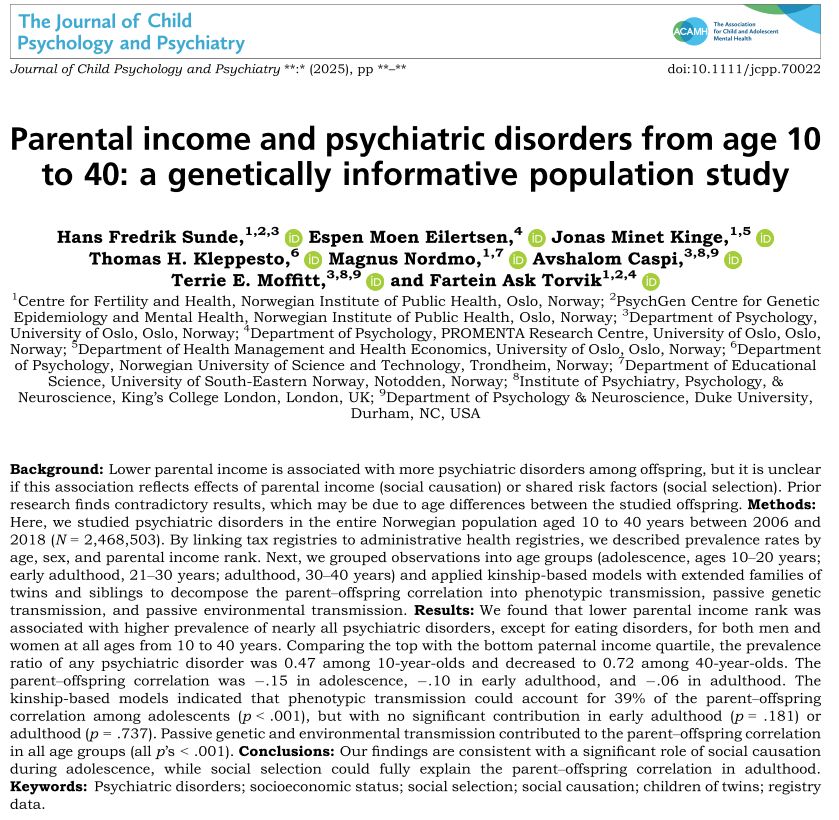
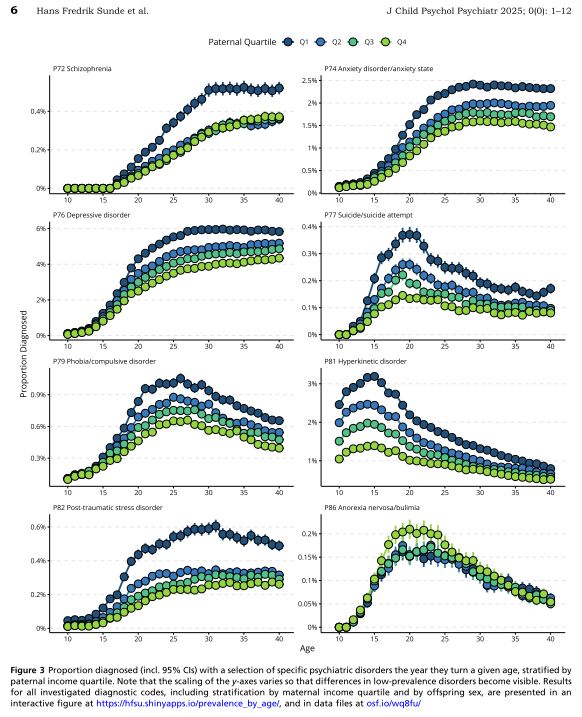
Our new paper is out today! 🎉 In it, we use administrative register data to document how psychiatric disorders are strongly linked to parental income, from childhood far into adulthood. Furthermore, we attempt to separate causation and selection using kinship-based models.
doi.org/10.1111/jcpp...
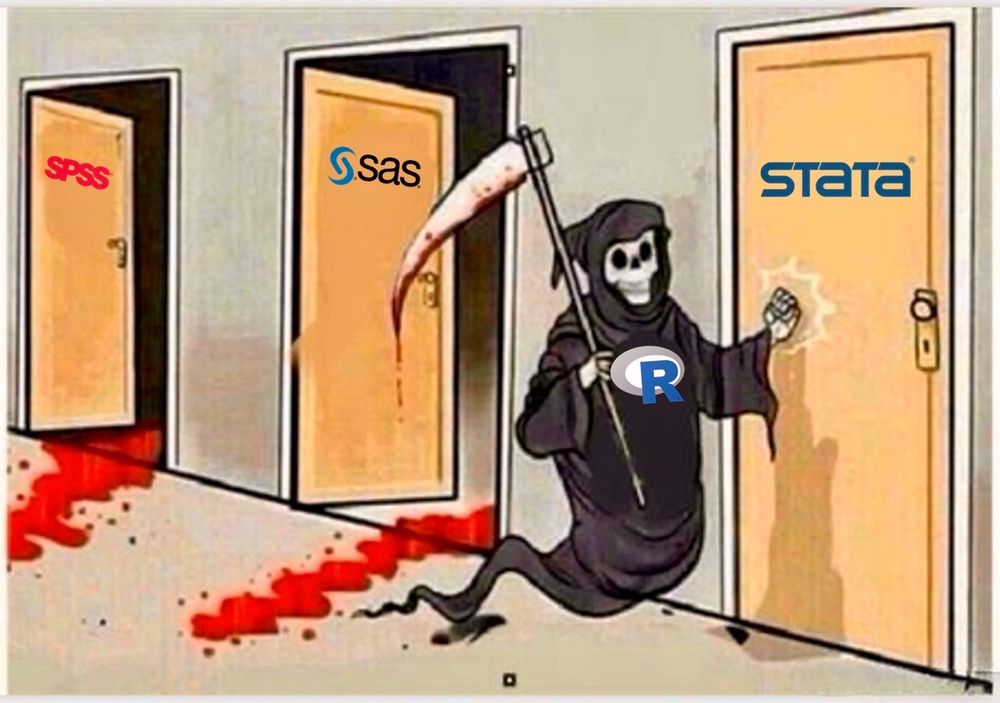 04.08.2025 11:30 — 👍 45 🔁 8 💬 4 📌 1
04.08.2025 11:30 — 👍 45 🔁 8 💬 4 📌 1

I was thinking about this: «Do larger incomes make people happier?»
10.07.2025 09:09 — 👍 1 🔁 0 💬 0 📌 0Much of the income - happines litterature.
10.07.2025 08:33 — 👍 3 🔁 0 💬 1 📌 07/7
💡 Bonus content:
We did not find any evidence for the idea that having “to much” cognitive ability is bad for your mental health.
📄 Full study: doi.org/10.1177/0956...
6/7
📉 The findings suggest an under-recognized high-risk group:
Individuals with low cognitive abilities + low education are particularly vulnerable to develop a mental illness.
5/7
🔍 We used sibling fixed-effects models to control for shared family background—some genetics, upbringing, socioeconomic status, etc.
📌 So differences in mental health risk can’t be explained by shared family environment.
4/7
🧬 Why is this study so robust?
✅ Huge sample: 272,351 men
✅ Nationwide administrative data
✅ Diagnoses from hospital records—not self-report
✅ Cognitive scores from mandatory military screening. In our cohorts, basically every male in the population was required to participate.

3/7
🎓 Educational attainment also independently predicted better mental health.
But the highest risk was for men who were low in both cognition and education.
This group faced the highest probability of adult psychiatric diagnoses.


2/7
🧠 Higher cognitive ability at age 18 predicted lower risk of all psychiatric disorders at ages 36–40—especially substance abuse.
✅ This held even when comparing brothers raised in the same family.

🧵1/7
New study: How do adolescent cognitive ability and education predict adult mental disorders?
🧠📚➜🧑⚕️
Using Norwegian register data (N = 272,351 men) of GP diagnoses and military assessed cognitive abilities.
👇
 27.06.2025 06:17 — 👍 1 🔁 0 💬 0 📌 0
27.06.2025 06:17 — 👍 1 🔁 0 💬 0 📌 0

The Causal Bandits episode with me is finally up! We talked about a hodge-podge of causal inference and methods issues. I already got one positive testimonial from my boss who listened to the first half and liked it!
05.06.2025 08:54 — 👍 99 🔁 23 💬 6 📌 3Before submitting your manuscript, make sure to include some obvious errors. This gives reviewers a sense of adding some value to the process, without asking you to change anything of consequence. #AcademicPublishing #AcademicJournals #AcademicChatter #PeerReview
25.04.2025 14:36 — 👍 3 🔁 5 💬 0 📌 0Is it better to have the minions do meta analyses 😅?
18.04.2025 12:33 — 👍 2 🔁 0 💬 1 📌 0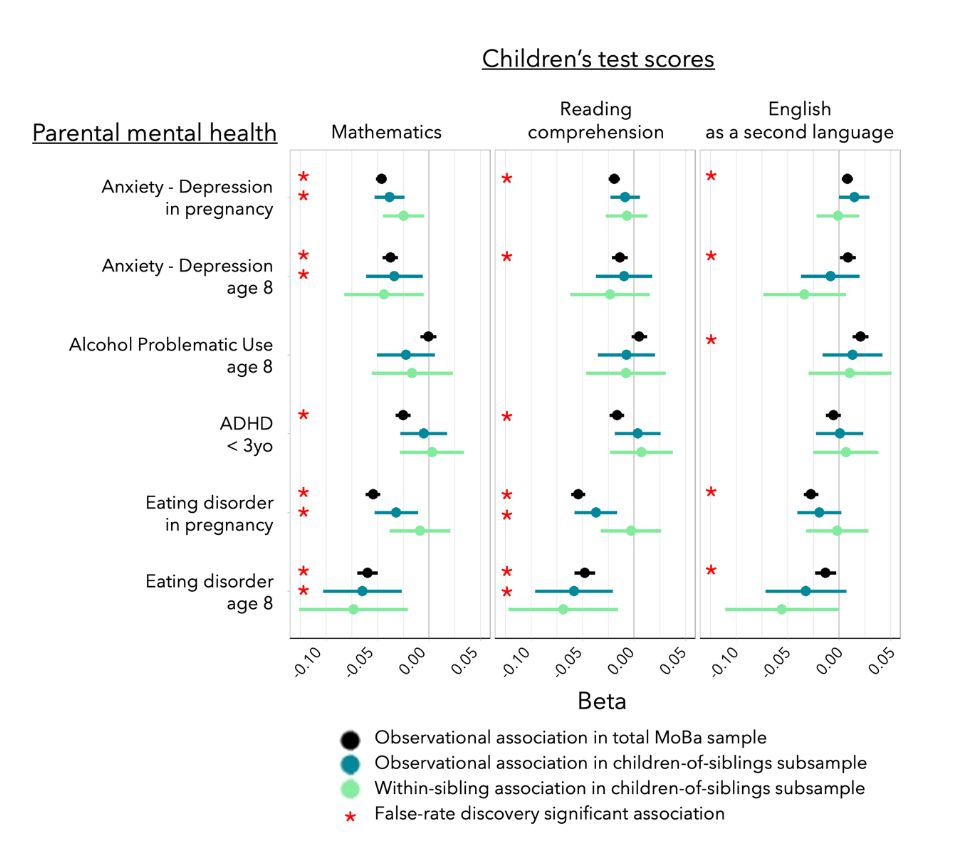
Main figure of the paper: Associations between parental mental health (anxiety and depression, alcohol problematic use, ADHD, eating disorder) with children's tests scores in mathematics, reading comprehension and English as second language at age 10.
New preprint!
We find no evidence that parental mental health influences children's academic achievement when comparing families in the Norwegian MoBa study.
osf.io/preprints/ps...
Quick thread 👇

Are we getting dumber or smarter? Our new study revisits the Flynn effect using Norwegian Armed Forces data. Results suggest IQ trends reflect changing test content and education, not true shifts in general intelligence. See our latest publication for details. www.sciencedirect.com/science/arti...
02.04.2025 06:29 — 👍 8 🔁 2 💬 0 📌 0
Roy Baumeister called ego depletion "one of the most replicable findings in social psychology." As someone who spent 20 years studying it—and ultimately had to admit it wasn't real—I have to respectfully disagree. Here's my perspective of what went so wrong.
29.01.2025 14:49 — 👍 193 🔁 65 💬 12 📌 12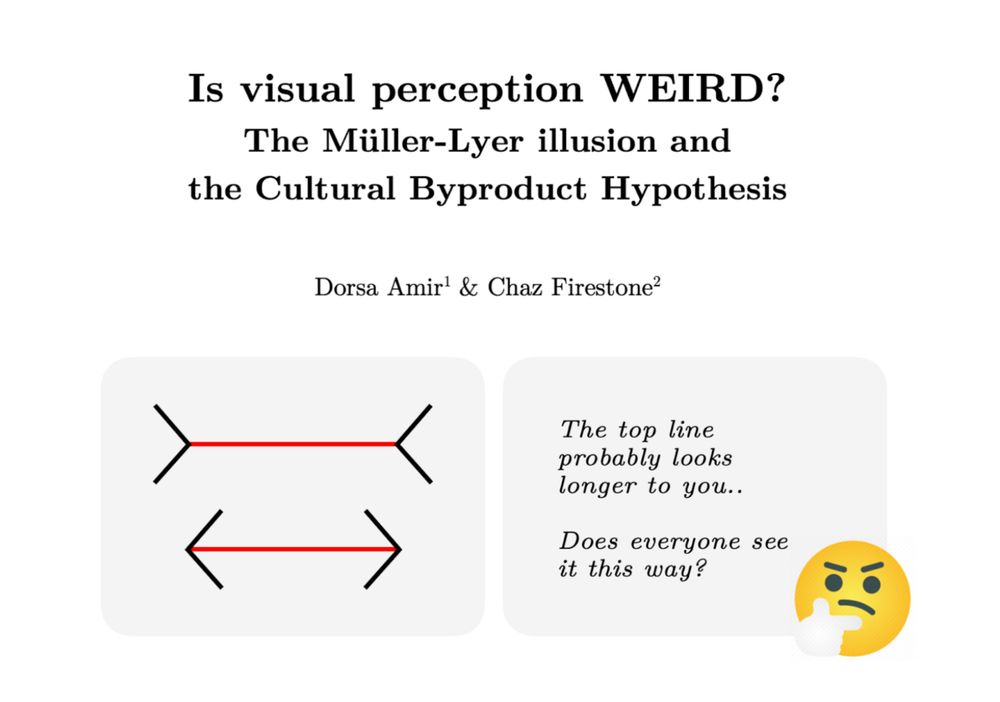
Does the culture you grow up in shape the way you see the world? In a new Psych Review paper, @chazfirestone.bsky.social & I tackle this centuries-old question using the Müller-Lyer illusion as a case study. Come think through one of history's mysteries with us🧵(1/13):
25.01.2025 22:05 — 👍 1093 🔁 423 💬 33 📌 79I think this approach grounds expectations about the kind of effect we’re discussing. Small effect sizes—often critically important—are hard to spot with the naked eye. This presentation style captures that nuance, in my opinion.
03.01.2025 21:14 — 👍 1 🔁 0 💬 1 📌 0I was inspired by how base R’s plot() behaves with a single vector. This approach mirrors the perspective practitioners encounter daily—whether they’re observing a classroom of students or assessing their patients one by one.🏫🏥
03.01.2025 21:14 — 👍 0 🔁 0 💬 1 📌 0
I spend a lot of time teaching non-scientists basic statistical concepts 📊. Effect size is especially hard to explain—PDFs, histograms, box plots, violin plots, and so on just don’t cut it. We need a new approach. Here’s one that requires minimal prior knowledge to understand.
03.01.2025 21:14 — 👍 2 🔁 1 💬 1 📌 0

I can't belive how good the new O3 models are from OpenAI 😱. All the talk about AI stagnation feels completely misplaced.
20.12.2024 18:56 — 👍 1 🔁 0 💬 0 📌 0Psykisk helse hos barn varierer sterkt etter foreldrenes inntekt og utdanning. Hvorfor er det sånn?
I fire år har vi forsket på sosial ulikhet, psykisk helse og genetikk. Kom på Kulturhuset onsdag 20. november kl. 9, så får du høre hva vi har funnet ut!
www.fhi.no/om/kurs-og-k...

Two perspectives on cocaine use among young adult in Norway.
Data:
www.fhi.no/contentasset...